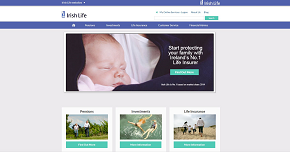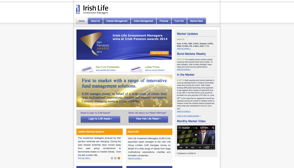Flexible work trends around the world Irish employers need to know
In most countries, newbie parents don’t usually ask their employers if they can work from Spain because it’s warm and a nice place to raise children. But in Finland, home to some of the most family-friendly flexible work policies in the world, it’s considered a perfectly normal request.
In one instance, an employee at a Finnish IT firm had a simple request: to work from Spain for six months so that their family could get away from the dark and freezing winters of Helsinki. “It worked brilliantly actually,” the employee told a news outlet, insisting that the move improved productivity.
It was agreed after a report was written outlining their main tasks – which include managing 20 employees – and how they would complete the tasks from Spain. Everyone involved kept in touch through online tools, video conferencing and occasional trips back to the office.
The Finnish IT firm is one of many emerging businesses that actively encourage staff to do some tasks remotely to encourage creativity, cut commuting times and help with retention and recruitment of much-prized IT professionals.
Flexible working around the world
Finland was well out in front as the global leader in flexible work arrangements nearly a decade ago, with 92% of companies offering flexibility according to a 2011 study. Next came Sweden on 86% followed by Australia and Thailand both on 85%. Ireland made the top ten with 77% - just behind the US and the UK, both on 79%.
Then, just as the rest of the world started to catch up, Finland stole the march again in 2020 with a revolutionary new Working Hours Act, which allows staff to pick and choose when and where they work.
Flexible work trends in Sweden
Sweden is ‘neck and neck’ with its Nordic neighbour when it comes to taking the plaudits for most family-friendly working environment.
There are few things more worrying and stressful for parents than when a child is sick. The primary concern is for the sick child of course. But both parents then have to deal with the relationship-testing question: who is going to call their employer to say they can’t come in today?
In most countries, the situation is resolved when one partner calls his or her boss, but this can be stressful if the workplace culture is not supportive.
Swedes don’t have that added stress when caring for their sick children as, by law employees have the right to take the day off when their children are ill. And the state pays 80% of their salary.
Such flexible working hours is one of the reasons why Stockholm was ranked the best city in the world for work-life balance. In the Swedish city, there is no ‘nine-to-five’ grind – nor rush hour. It has solved the perennial problem for parents – how to pick up your kids from school when you can’t leave until 5pm? Working days are from 9pm to 4pm or from 10am to 3pm.
Parental leave comprises of a glorious 480 days of paid leave for each child, which can be shared as the parents wish. Three of these are “daddy months” to encourage men to take leave and reduce hidden prejudice against female job applicants likely to take maternity leave.
So, what have other progressive countries been up to?
Flexible working in other countries
Australia’s Fair Work Commission enables employees to request flexible working hours, locations or patterns. If employers refuse, they have to back up their decision with a compelling reason.
In 2015, Britain introduced shared parental leave where either parents can take up to 52 weeks (mostly unpaid) off to look after children.
In Ireland, the entitlement to (unpaid) parental leave went up from 18 to 22 weeks in 2019 - and from September 2020, goes up again to 26 weeks.
However, there’s a long way to go before we can declare the average workplace truly flexible and family-friendly, even in the relatively progressive EU.
Ireland may be to the fore in terms of flexible working arrangements and provides for 42 week’s maternity leave compared to 16-20 weeks in France, Spain, Italy and Germany. But there is a crucial difference in what is offered. The Irish State pays a flat rate benefit of €245 a week (2019 rate) for the first 26 weeks and nothing thereafter.
In France, Spain, Italy and Germany, maternity leave may be shorter – but it is at 100% of salary – not €245 a week. Likewise, your parental leave entitlement may be relatively long(ish) in Ireland but, unlike in Sweden, it is unpaid.
Flexible working in the EU
A 2018 EU study Family-friendly Workplaces found that, despite the obvious benefits of flexible working, the majority of EU employees do not have flexibility in their working hours and family-friendly legislation is inconsistent across member states.
Almost two out of every five workers (38%) reported difficulties in fulfilling family commitments because of time spent at work. Denmark, Sweden, Finland, Holland and Ireland were the top five for flexibility with the bottom ten all in Eastern Europe.
While the legislators of other nations play catch up with innovative Nordics, companies are forging ahead with solutions of their own. They recognise that flexible working is a key and cost-effective retention and recruitment tool in an ever-more competitive workplace.
A flexible workplace is a happier workplace – and a more stable and productive one….That seems to be the message from a host of companies pioneering family-friendly flexible work strategies around the world – and receiving plenty of plaudits as well as benefits to recruitment and retention.
The flexibility to bring their 3-yr-old son or 6-yr-old child to the doctor when they need to is one of the reasons one employee likes their job as an executive for an automobile firm in Germany.
“Since the Flex Work Model was introduced about a year ago, it has been much easier for everyone to create a work/life balance,” the employee said in an interview. The 15 employees under them may also work outside the office if they submit a request online. The executive signs off on one such request each month and uses it regularly for their own needs.
Progress on flexible work in Ireland
While, the UK, like Ireland grants workers lots of unpaid leave, one company reportedly went a step further and promises to pay 100 per cent of basic salary over 52 weeks of parental leave entitlement.
The pay is service-related, ranging from 25 per cent for those with fewer than two years’ service, up to 100 per cent for those with more than four years’ service.
In Ireland, Irish Life, recently introduced six weeks’ extra paternity leave (for a total of eight weeks paid leave per year).
“Transitioning back to corporate work can also be difficult after extended leave, so companies could look to develop corporate transitioning policies to help workers ease back to work, gradually building their hours until they’re back to full time,” Irish Life reasons in its 2019 report – In Search of Pension Parity.
“We do this in Irish Life with our Phased Return Initiative, where returning mothers can gradually increase their hours to a five-day week over the course of a month,” the report adds. Irish Life also provides a range of differing leave policies so that everyone can access some form of flexible working, from additional leave for life events to paid sabbaticals for employees who have long service in Irish Life.
Vodafone also gets honorable mention in the Irish Life report, after recently introducing a “very progressive global Maternity Returner initiative, which allows women to work a four-day week at full salary for 6 months after maternity leave.”
This allows “for an easier transition back into the workplace, negating any gap or reduction in (pension) contributions),” the Irish Life report states.
It concludes: “Changes are already happening, in tandem with a societal shift in Ireland at large. Companies are incorporating diversity and inclusion into their ethos, which is slowly eradicating the legacy gender issues that have prevailed for decades.”
The Irish Government has undertaken a consultation process on flexible working as part of Future Jobs Ireland, a Government initiative. A report will be available on www.justice.ie.
So, while we may have a long way to go on this issue, the conversation has at least begun.
Irish Life is committed to working on the challenge of the Gender Pension Gap, both within its own business and alongside the employers of Ireland. We have a number of plan solutions to help our members maximise their pension outcomes.
We welcome you with us on the journey towards balance.
Join the conversation today on LinkedIn and Twitter #pensionparity #genderpensiongap




